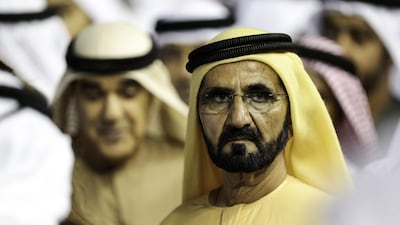Soft power is not an easy thing to define. Everyone understands hard power: the guns and jets and ships that allow countries to get their way or stop others trying to challenge them. But soft power? That’s much trickier.
Most people recognise the soft power of the United States. Hollywood. Harvard. Silicon Valley. The US has groups of ideas – rather than simply brands – that many people outside the US agree with and even aspire to.
This is soft power. When an American businesswoman talks about rising as far as her talents will take her, there are many Egyptian, Nigerian and Japanese peers who will nod. The ideas are familiar and America presents itself as a place where such movement is possible.
What is the soft power of the UAE? This is both an easy and a fiendishly difficult question to answer. Now Sheikh Mohammed bin Rashid, Vice President and Ruler of Dubai, has set up a council to work on a soft power strategy that will include aspects of science, culture, technology and humanitarian work.
To some degree, the UAE is pushing at an open door. Across the Arab world, young people frequently cite the UAE as the place they want to live and work and want their countries to emulate. In India, it is seen as a great place to do business and raise a family. Across Asia and Africa and Europe, it is a place recognised – sometimes grudgingly – as a place to acquire a high standard of living.
Telling the story of the UAE to those who already know and understand it will be easy. And to a large degree, the country is already doing this.
Through Dubai Cares and the Emirates Red Crescent, the UAE ensures that those in need see in concrete terms that it is coming to their aid. Brands such as Etihad and sponsorship of Manchester City help spread the message its abroad.
In the larger Islamic world, too, initiatives such as the Year of Giving confirm the UAE as a role model for coexistence.
What will be harder is to explain and project those values into places that know less about the UAE or are actively hostile. That is a real challenge, but not an insurmountable one. That’s the reasoning behind the council. By putting together a concerted strategy, the UAE can ensure that when people hear about the country, they have a warm, positive feeling towards it.

